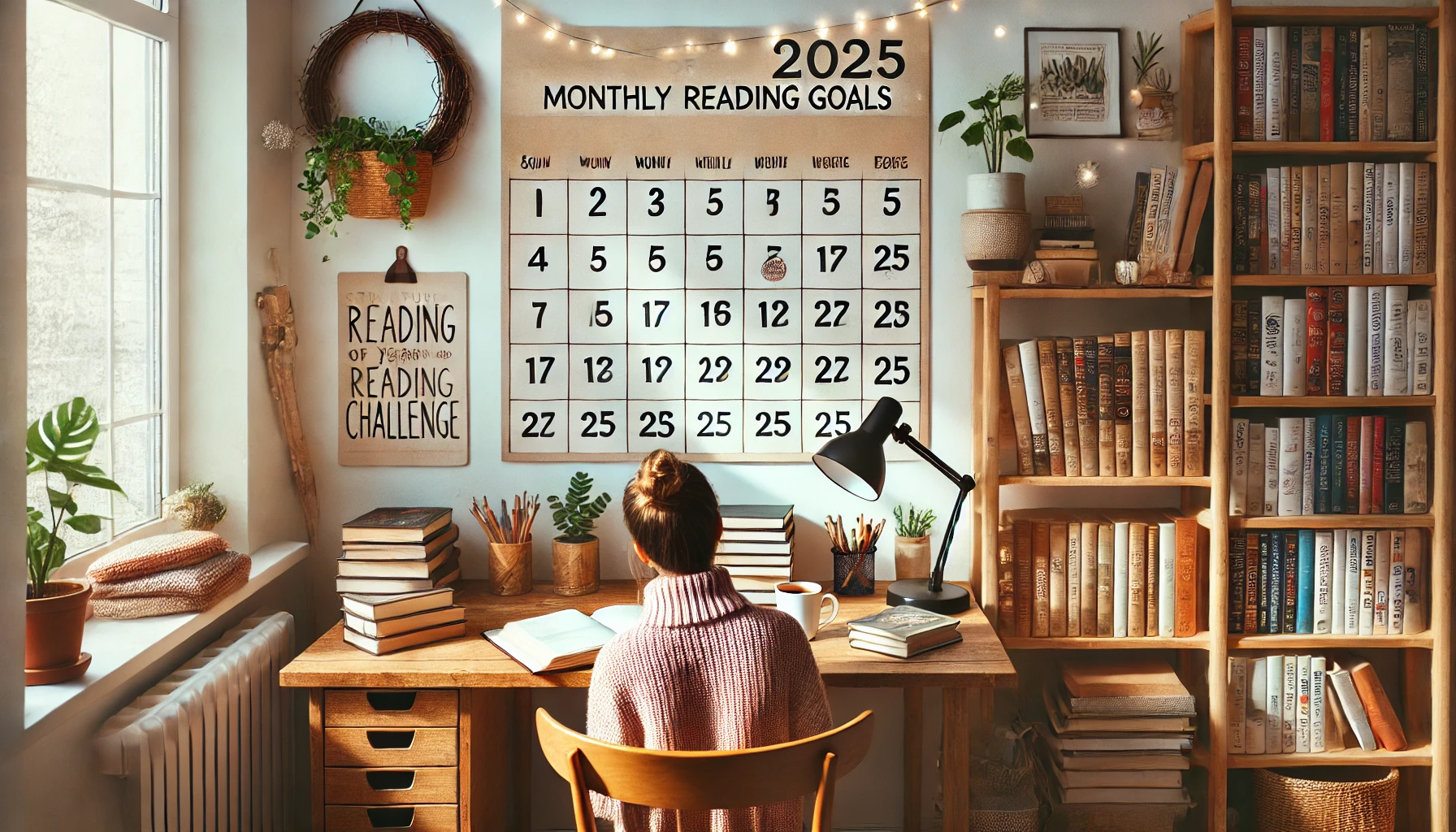With so much information available today, developing a strong reading habit is more important than ever. However, simply reading more books doesn’t guarantee better understanding. The key is combining structured reading challenges with effective comprehension strategies. In this guide, you’ll learn how to make 2025 your best reading year by balancing quantity and quality.
1. Why Monthly Reading Challenges Help You Read More and Learn Better
A well-designed reading challenge:
- Encourages consistency by setting clear goals.
- Introduces new genres and perspectives to expand your knowledge.
- Improves comprehension through structured reading habits.
- Makes reading more engaging and enjoyable.
Instead of reading randomly, a challenge provides a roadmap for a productive reading year.
2. Choose a Challenge That Matches Your Goals
Different reading challenges can help you achieve specific objectives. Try:
- The One-Book-a-Month Challenge – Perfect for deep, reflective reading.
- The Thematic Challenge – Assign a different topic or genre to each month.
- The Daily Reading Habit Challenge – Aim for 10–20 pages per day.
- The Hybrid Challenge – Mix fiction and non-fiction to maintain variety.
Selecting the right challenge will keep you engaged throughout the year.
3. Plan Your Monthly Reading Schedule
A structured plan helps you stay on track. Consider:
- January – Productivity & Self-Development
- February – Classic Literature
- March – Science & Innovation
- April – Biography & Memoirs
- May – Fiction & Storytelling
- June – Business & Finance
- July – Travel & Culture
- August – Mystery & Thriller
- September – Psychology & Personal Growth
- October – Fantasy & Sci-Fi
- November – History & Politics
- December – Reflection & Review
This structure keeps your reading journey balanced and engaging.
4. Use Active Reading Techniques to Improve Comprehension
To get the most out of your books:
- Take notes on key insights and ideas.
- Summarize each chapter in your own words.
- Use the Feynman Technique—explain concepts as if teaching someone.
- Highlight important passages but don’t overdo it.
Engaging with the content actively enhances retention and understanding.
5. Track Your Reading Progress for Motivation
Monitoring your reading habit keeps you accountable. You can:
- Use Goodreads or StoryGraph to log books.
- Maintain a reading journal to track key lessons.
- Set milestones and reward yourself for progress.
Tracking progress provides motivation and a sense of achievement.
6. Join a Reading Community for Extra Motivation
Reading becomes more engaging when shared with others. You can:
- Join a book club to discuss insights and interpretations.
- Participate in reading challenges on social media.
- Find a reading buddy to keep each other accountable.
A supportive community makes reading a fun and enriching experience.
7. Apply What You Read to Your Life
To truly benefit from reading:
- Implement at least one lesson from each book.
- Discuss books with others to reinforce learning.
- Revisit key passages and notes for long-term retention.
Applying knowledge ensures reading translates into real-life improvements.
Final Thoughts
Making 2025 your best reading year requires a combination of structure, engagement, and application. By setting up a monthly challenge, tracking progress, using active reading strategies, and discussing books with others, you can read more and understand better.
Are you ready to make 2025 the year of reading? Start your challenge today!

